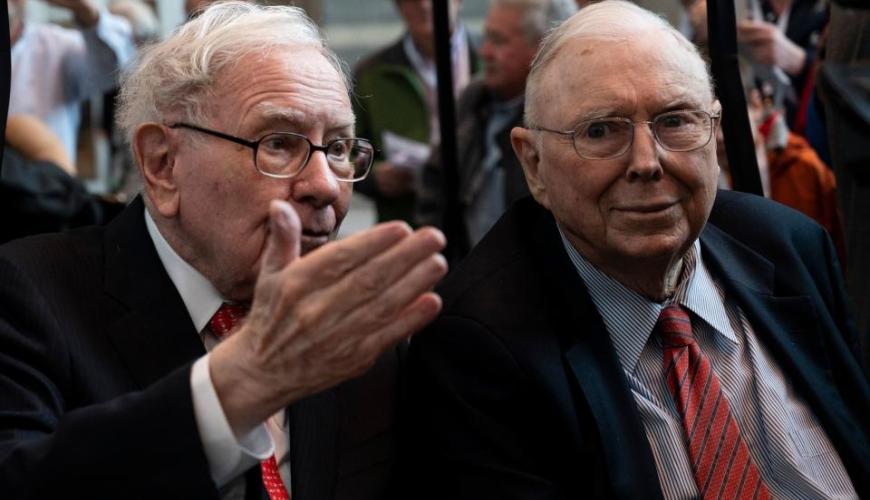The Impact of Charlie Munger on Berkshire Hathaway: Insights from Warren Buffett's Annual Letter
- 25 February 2024 2:00 AM

In Warren Buffett’s annual investor letter for Berkshire Hathaway, he paid tribute to his longtime collaborator, Charlie Munger, who passed away last November aged 99. Buffett credited Munger, his right-hand man, for being the “architect” of modern Berkshire Hathaway, the largest conglomerate in the United States in terms of GAAP net worth.
Buffett echoed his appreciation for Munger’s role, regarding him as an older brother or a loving father. Despite his significant contribution to the construction of Berkshire Hathaway, Munger preferred to remain behind the scenes, always letting Buffett have the limelight.
The investing duo, both originally from Omaha, met in 1959. Munger, a lawyer by profession, became the vice chairman of Berkshire Hathaway in the late '70s. However, their partnership in investing started even earlier, with Munger advising Buffett on his investing strategies since 1962.
Buffett revealed that Munger's advice in 1965 significantly influenced his investing approach. Munger urged him to focus on acquiring wonderful businesses at fair prices and abandon the practices he learned from his mentor, Ben Graham. Despite initial resistance, Buffett eventually implemented his advice.
This approach, however, seems to significantly limit Berkshire's investment opportunities. Buffett admitted that abundant investment candidates to evaluate are now a thing of the past because the size of the company coupled with increased competition made it challenging to find attractively priced investment opportunities.
In recent times, Berkshire Hathaway completed significant acquisitions like the insurance company Alleghany and the rest stop operator Pilot. Despite these, Buffett signified that there are a scarce number of companies capable of impacting Berkshire significantly that haven’t been thoroughly examined by them and their competitors.
Buffett also expressed disappointment at the performance of Berkshire’s railroad and utilities businesses in 2023. He attributed the downturn to changing regulatory circumstances, that disrupted the investment-backed model offering "fixed-but-satisfactory-returns". He regretted his failure to anticipate these issues, calling it a "costly mistake".
In his letter, Buffett assured shareholders about Berkshire Hathaway’s resilience, being equipped to manage and exploit market fluctuations. He stressed that market disruptions like those witnessed in 1914 and 2001 will reoccur unpredictably. To protect against such eventualities, he adopts a strategy of maintaining a large cash pile and highly-liquid Treasury Bills.
Buffett reassured that Berkshire’s financial conservatism serves to protect the interests of its shareholders. Despite uncertain market conditions, Berkshire Hathaway sustains its liquidity through its operations, without depending on commercial paper, bank lines, or debt markets. This extreme fiscal conservatism, according to Buffett, is a commitment to the company's shareholders.
